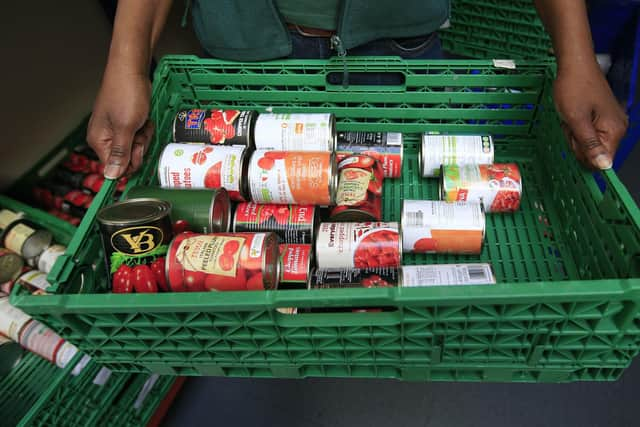Number of food parcels distributed by Trussell Trust in Northumberland hits all-time high
and live on Freeview channel 276
It says the rise is a product of problems with the UK's welfare system – not just the pandemic and cost of living crisis.
The charity, the country's leading operator of food banks, distributes millions of food parcels to those in need every year – and the number has risen again this year.
Advertisement
Hide AdAdvertisement
Hide AdFigures from the Trussell Trust show 2,966 food parcels were handed out in Northumberland in the year to March in the area's only distribution centre in Cramlington – more than double the 1,921 in 2021-22.


This was the highest number of parcels provided in the area since at least 2017-18.
Last year 1,065 of these parcels – 36% – were given to children. In 2021-22 this figure was 667 (35%).
Across the UK, a total of 2,986,203 emergency food parcels were given out between April 2022 and March this year – up 37% on the year before.
Advertisement
Hide AdAdvertisement
Hide AdThese figures cover parcels handed out by the Trussell Trust itself, but do not include emergency food supplies provided by other charities and organisations.
Emma Revie, chief executive at the Trussell Trust, called the statistics "extremely concerning".
She said: "The continued increase in parcel numbers over the last five years indicates that it is ongoing low levels of income and a social security system that isn’t fit for purpose that are forcing more people to need food banks, rather than just the recent cost of living crisis or the Covid-19 pandemic.
“Food banks were set up to provide short-term support to people in an emergency, they are not a lasting solution to hunger and poverty, and more than three quarters of the UK population agree with us that they should not need to exist," she added.
Advertisement
Hide AdAdvertisement
Hide AdAcross the North East, 154,403 parcels were handed out in the year to March – up 54% from 100,334 the year before, and the largest increase of any English region.
A Department for Work and Pensions spokesperson said: “We are committed to eradicating poverty and we recognise the pressures of the rising cost of living, which is why we have increased benefits by 10.1% as well as making an increase to the National Living Wage this month."